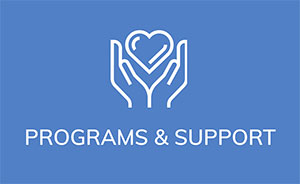Over the course of a year of monthly meetings, the CLL Bloodline will teach the BASICS needed to understand CLL, bring news, help with the acronyms and new vocabulary, and offer simple fun quizzes.
MONTHLY QUIZ: Chemo-immunotherapy (CIT), specifically FCR (fludarabine, cyclophosphamide, and rituximab), can give long remissions that are starting to look like cures frontline for CLL patients who:
- Are missing the short arm of chromosome 17, also known as deletion 17p.
- Have mutated IgHV.
- Have unmutated IgHV.
- We can’t predict who is more likely to respond to CIT.
ANSWER: FCR has resulted in very long remissions for a few fit young low-risk patients with mutated IgHV, and no other “bad” prognostic factors such as 17p or 11q deletions or mutated TP53. Only about 1 in 7 fits in this group. More than half with mutated IgHV treated with FCR had no CLL progression for up to 20 years. In fact, for healthy young patients with the best prognostic factors, if FCR gets them to undetectable measurable disease (uMRD), then they have an almost 80% chance of never needing more treatment. However, if one doesn’t fit into that low-risk group, outcomes are much worse. Testing for IgHV mutation, a simple blood test, should be mandatory for anyone considering FCR. Our motto is: TEST BEFORE TREAT™ but unfortunately it is often not done in community practices. Despite these excellent results in this small patient group the role for CIT in CLL or SLL is very small and shrinking due to excellent targeted therapies. There is really no place for another CIT combination, bendamustine and rituximab. Also, FCR increases the risk of second cancers including MDS (myelodysplastic syndromes) that is a very hard to treat blood cancer and FCR is poorly tolerated by older and sicker patients.
NEWS:
- Save the date: March 19th webinar on integrative medicine in CLL. More information soon.
- We launched our Veterans with CLL Support Group. Please share that Veterans and active-duty military with CLL or SLL and their care partners are welcome to sign up. First meeting is March 16th.
- If you missed the webinar “ASH 2023 Comes to You!” with Dr. Nicole Lamanna, you can catch the replay for this program and other education on-demand here.
- CLL Society is looking for people with experience discontinuing treatment with a BTKi (such as ibrutinib, acalabrutinib, or zanubrutinib) for an upcoming survey. Linked here is a brief screening survey to help us identify participants who would be interested with this specific experience. Participation in surveys advances understanding of CLL.
- CLL Society’s Expert Access Program™ is available to anyone with a CLL diagnosis residing in the US who needs a 2ndopinion from a CLL expert physician. If you have previously participated in this program, you can re-apply if additional clinical advice is needed, learn more here.
THE BASICS: What to do when first diagnosed: CLL is usually slow growing giving you time to plan. Don’t neglect your routine preventive care, especially age and gender appropriate cancer screening such as PAPs, mammography, PSA, colon cancer screening and especially skin checks, as CLL increases the risk of many secondary cancers, including skin cancer. Stay up to date with vaccinations and get the annual flu shot and COVID shots but avoid live vaccines such as yellow fever or MMR as they are not known to be safe in CLL. Put together your treatment team (get help at the CLL Society’s online toolkit), join a support group, and frontload your knowledge about your disease.
WORD/ACRONYM OF THE MONTH: Lymphocytes:
Lymphocytes are white blood cells. There are 3 basic types: B lymphocytes or cells, T cells, and natural killer (NK) cells. CLL is a cancer of the B cells. Normal B cells mature into plasma cells that make antibodies, T cells are soldiers in our cellular immune system and direct or do the killing themselves, and NK cells are part of our nonspecific innate immune system. Unlike T cells, NK cells don’t need to be primed to kill virally infected or cancer cells. Quite the team!
The CLL Society is invested in your long life. Please invest in the long life of the CLL Society.

















